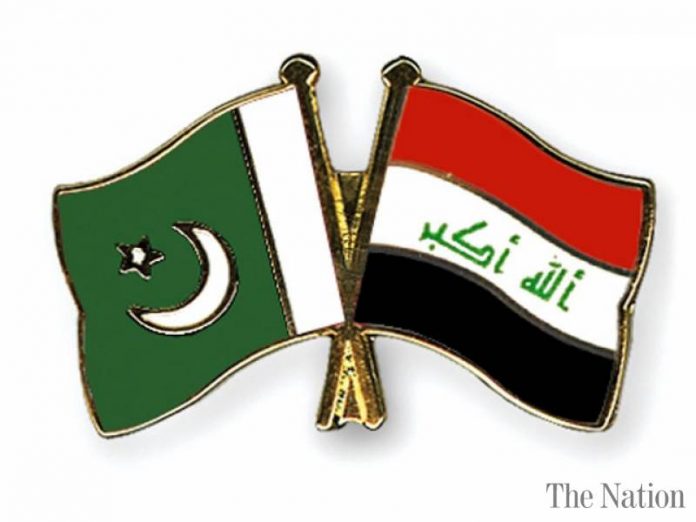ISLAMABAD:In a landmark move to deepen economic ties and enhance religious tourism, Pakistan and Iraq have signed a Memorandum of Understanding (MoU) to launch a direct maritime ferry service between Iraq’s Umm Qasr Port and Pakistan’s Gwadar Port.
The agreement was finalized during a meeting between Federal Minister for Maritime Affairs, Muhammad Junaid Anwar Chaudhry, and a delegation from the Iraqi Embassy in Islamabad, led by Deputy Head of Mission Abdulqadir Sulyman Alhimiri.
Welcoming the development as “a new chapter” in bilateral relations, Minister Chaudhry said the ferry service would not only strengthen trade and cargo connectivity but also provide a secure and cost-effective travel option for pilgrims journeying between the two countries.
The minister highlighted that Pakistan is capable of meeting Iraq’s demand for Potassium Sulphate, with a dedicated manufacturing facility already operating in the Gwadar Free Zone.
He also sought Iraq’s support for Pakistan’s candidacy in the upcoming International Maritime Organization (IMO) elections, receiving an assurance of full backing from the Iraqi side. The IMO is a United Nations agency responsible for regulating global shipping, with a focus on safety, security, and environmental stewardship.
The initiative comes amid a notable rise in cross-border religious travel. In 2024 alone, more than 88,000 Pakistani pilgrims visited Iraq for Ashura. The two countries view this growing trend as a strong foundation for establishing regular ferry links that could serve both religious and commercial travelers.
Minister Chaudhry informed the Iraqi delegation that Pakistan is also working to develop ferry routes with Iran and Gulf Cooperation Council (GCC) countries. A similar arrangement with Iraq, he said, would align well with Pakistan’s broader regional maritime integration strategy.
To further enhance bilateral trade, the minister proposed expanding Pakistani exports of medicines, meat, and rice to Iraq, while encouraging greater imports of crude oil from Iraq to Pakistan. This diversification, he noted, could significantly increase bilateral trade volumes beyond current levels.
Trade data for FY 2024 shows that Pakistan’s exports to Iraq amounted to $54.29 million, while imports—mostly petroleum products—stood at $145.46 million. Analysts believe this trade volume remains far below its true potential, given the market size and mutual economic interests of the two countries.
Deputy Head of Mission Alhimiri welcomed the minister’s proposals and described the maritime sector as a “key enabler” for deeper cooperation in the future.
Both sides agreed to continue follow-up discussions, with technical teams set to conduct feasibility studies and assess infrastructure and investment needs. If implemented, the ferry service is expected to significantly transform Pakistan–Iraq maritime connectivity, creating new opportunities for trade, tourism, and regional integration.
Minister Chaudhry further emphasized the strategic importance of the proposed ferry link as a potential maritime corridor for Iraq to access broader Asian markets, reduce logistics costs, and stimulate economic growth.
Earlier, during a briefing by Director General of Shipping and Ports, Alia Shahid, the minister was updated on preparations for the launch of Pakistan’s first domestic ferry service. He called for swift reforms to licensing procedures and financial facilitation for private operators to ensure affordable and accessible sea travel, particularly for religious pilgrims.
To remove bureaucratic hurdles, the minister directed that the licensing process be fully digitalized and integrated with the Pakistan Single Window platform—similar to ship registration systems. He also ordered that the license issuance period be cut from six months to one.
In a bid to attract private sector investment, the minister urged evaluation of flexible financing options, including bank guarantees, insurance guarantees, or hybrid models, to support ferry operators.
According to industry sources, between 700,000 and 1,000,000 Pakistani Zaireen travel to Iran and Iraq annually. And, if even 20 percent opt for ferries in the first three years, that’s 140,000 to 200,000 passengers annually—a massive economic opportunity, they added.




